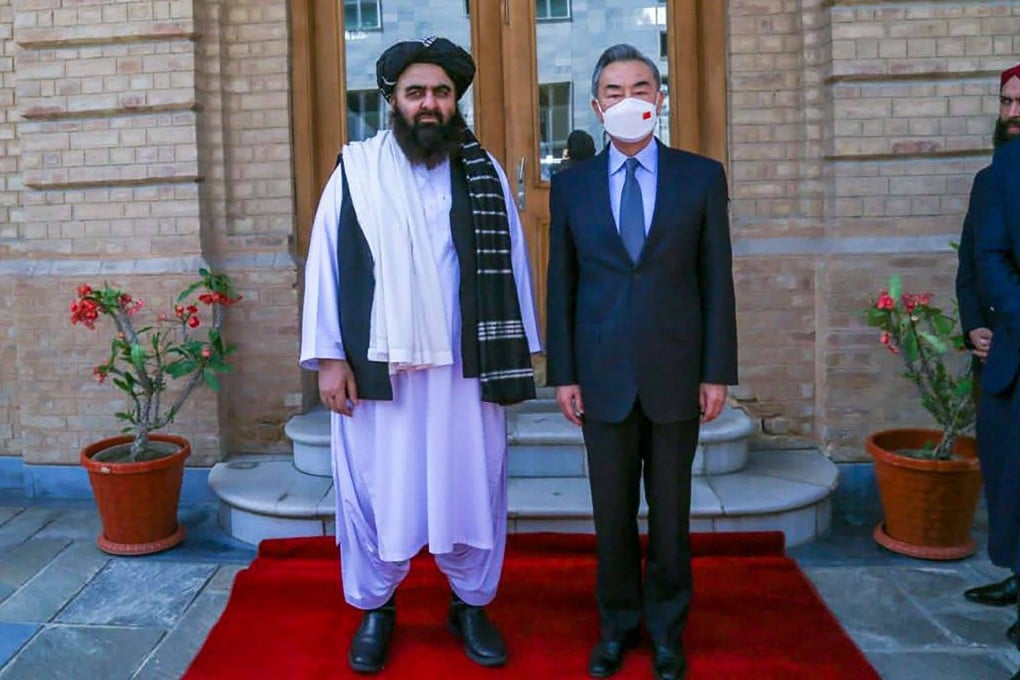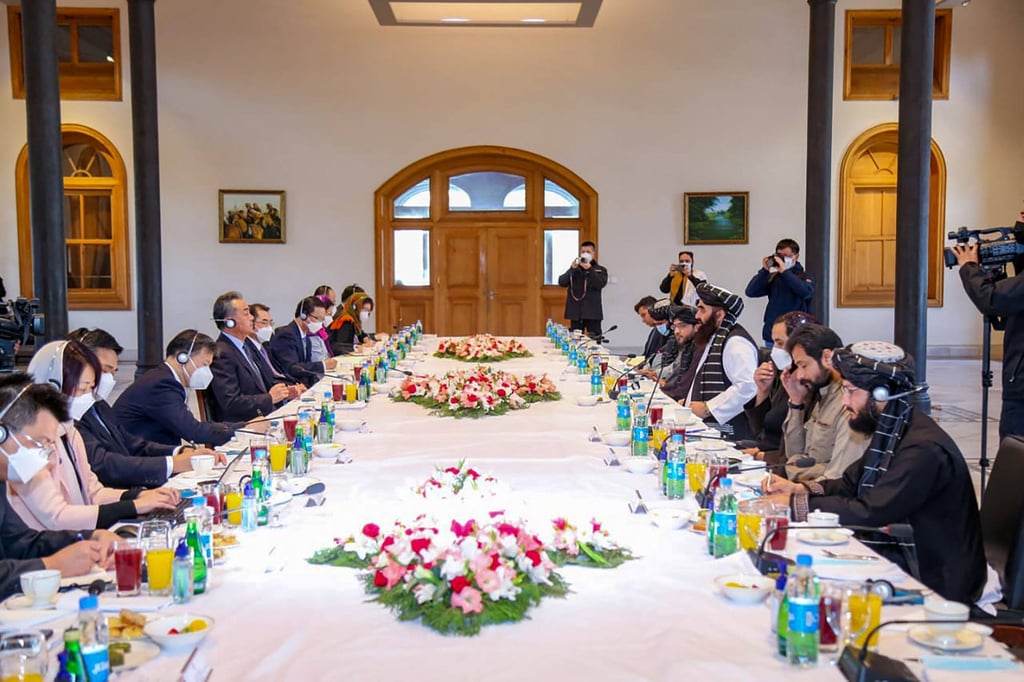Advertisement
Chinese foreign minister makes surprise stop in Afghanistan for talks with Taliban leaders
- Wang Yi’s unannounced trip is China’s highest-level visit to the country since the Taliban took over in August
- Beijing will host a meeting of foreign ministers representing Afghanistan’s neighbours this month to discuss humanitarian issues under Taliban rule
Reading Time:3 minutes
Why you can trust SCMP
58

Chinese Foreign Minister Wang Yi made a surprise stop in Afghanistan on Thursday during his tour to shore up ties with the region.
Wang’s unannounced trip is China’s highest-level visit to the country since the Taliban took over in August following the retreat of the United States’ 20-year military operation. No country has formally recognised the Taliban government.
Wang’s visit was announced by Ahmad Yasir, a top Taliban government official, on Twitter on Thursday afternoon: “[The] Chinese Foreign Minister arrives in Kabul for talks with Islamic Emirate leaders.”
Advertisement
Wang was personally received by the Taliban’s acting foreign minister Amir Khan Muttaqi, according to the official state Bakhtar News Agency on Thursday afternoon.
A one-minute video posted by the agency reveals a meeting was held, with Wang and the Chinese delegation sitting on one side of a long table across from Muttaqi’s team.

Both Beijing and Kabul have remained tight-lipped about Wang’s visit to Afghanistan. Nor has his expected trip to India on Thursday and Friday been confirmed by India or China, who have been engaged in an ongoing border conflict.
Advertisement
Select Voice
Select Speed
1.00x